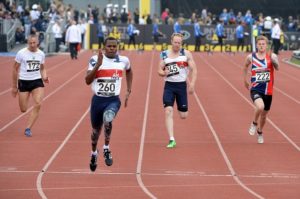
At the end of one of my recent posts I mentioned that aspiration to do better may be the characteristic distinguishing top performers and medium performers in many fields. However, while most people would likely agree that such differences in motivation may make a difference in regular jobs, there are also fields like professional sports, soloists in music, and academia, where competition is fierce and one has to be better than one’s peers to retain one’s job. Wouldn’t all those professionals be equally fiercely motivated? If that is the case, motivation would be a bad explanation for performance differences. Should we again try explain things by ‘talent’ or, if we look further, are there other factors we should take into account?
Most people, by definition, are not top performers in their jobs or careers. However, they generally do not have to be; as long as they are perceived by their employer or customer to deliver more value than they are paid, or customers or employers cannot very well judge the quality and quantity of their work, they can generally remain in their jobs and earn money for themselves and perhaps their family. So most people have no great need to improve in their job.
However, life is quite different if one is a professional sporter, artist, or untenured scientist. If you don’t perform very well compared to your competition (which tends to be considerable) you are soon out of clients, sponsors, funds, or a job. You really cannot slouch that much, every professional in these fields would have at least some motivation to perform well and pay attention to their performance. So it would be natural to think that if all performers are motivated if not very motivated, differences in performance in those fields cannot come from motivation, but must come from other factors, like talent.
Of course, talent may exist. In some fields, like the 100 m sprint, the dominance of black sprinters suggests some genetic talent that can give a small but crucial advantage over people who did not originate from the west of Africa. Sometimes genes play a role. The genetic advantage in this case may be small (0.15 s, or less than 2%), but in sports, very small differences count, as differences between best and worst professional sprinters may only be like 10%, which is noticeable, but is obviously much less than the reported factors of 2 to 10 differences observed for scientists, programmers and teachers.
So while talent may give explain some performance differences, one should also look at other factors. Quality and quantity of training, for example, and -indeed- differences in motivation.
The easiest factor to assess are differences in training. In general, top performance started training earlier in their field than less prominent performers. Mozart who started music lessons at age 2, and Tiger Woods, who even before that age was placed by his father in a children’s chair to watch dad Woods hit golf balls again and again. Michael Jackson and Andre Agassi similarly started (or rather were started) their training early, driven by dominant dads. It is hard to separate the effects here: brain plasticity is likely highest at young age, social support/pressure is enormous as the trainer is someone incredibly important to the trainee, the amount of time available for training is very large, and social recognition for the ‘prodigy’ will likely also enhance motivation. How early training starts, how much training one has received, and how much attention one pays to the training that is received simply because the trainer happens to be someone very important to you will all influence how much is learned. Definitely, differences in performance will at least for a part reflect differences in the amount of effective training, one can definitely explain differences even among professionals for a large part due to differences in training instead of immediately claiming differences in ‘talent’.
Another reason to believe in the importance of training, also in fields like science which seem to have much less fanatical dads drilling their offspring, is the phenomenon reported by the sociologist Harriet Zuckerman in her book “Scientific Elite“: over half of US Nobel prize winners had been either PhD student or postdoc in the laboratory of another Nobel prize winner. Most of those who hadn’t, had worked as PhD student or postdoc of a scientist who was nominated for a Nobel prize (but did not get it), or had a supervisor who worked closely together with another (future) Nobel prize winner. In short, most extremely successful scientists worked closely in their ‘formative years’ with scientists who also were extremely good. And they indeed reported that their experience with those top scientists had been very important to them, not so much as for learning subject matter knowledge (like physics formulas) but ways of thinking and doing research.
Now, one could argue that learning might not have played a role at all here; the ‘mentors’ could have gotten their Nobel prize together with their mentee (like happened to physicist Gerard ‘t Hooft who shared his Nobel prize with his mentor Martinus Veldman), or the mentors used their social clout (Nobel prize winners can nominate candidates) to bring their favorite pupils to Stockholm too. Or only the most promising young scientists were selected by the mentors to join their labs; the young scientists would very likely received a Nobel prize on their own, their talents were simply recognized early.
The above factors may indeed have an influence, however, a closer look at the data suggests that education plays an important part too. The persons who supervised most future Nobel Laureates, Arnold Sommerfeld and Enrico Fermi, were neither the most famous scientists of their age (so they could not necessarily expect the best and brightest to flock to them), nor did they have the strongest networks they could use to ‘Nobelize’ their mentees; Sommerfeld never won a Nobel prize so could not nominate people himself, Fermi died relatively young. However, the striking similarity between the two mentors is that they cared a lot about mentoring their students. In Cropper’s book “Great Physicists“, Fermi was the only one described as wanting to become a professor because he loved teaching, and while he carefully selected his students, he was willing to spend infinite amounts of time and care on mentoring them. Sommerfeld was a supervisor who would have 1-to-1-discussions about their projects and developments in science in general for about 1 hour every other day with each of his PhD students, which is an enormous amount compared to the more typical half an hour a month that normal supervisors are willing to spare. Of course, Fermi and Sommerfeld were themselves also very good researchers. However, among the many great researchers in the 20th century they stood out not for being the best researchers but as those professors most dedicated to give promising young scientists a great education. And the record numbers of Nobel prizes for their pupils (7 for Sommerfeld, 6 for Fermi) seems to indicate that they were quite effective in that.
So even in science, training is important, and it is likely that top educators are in shorter supply than top potential talent is.
And the original premise of this blogpost, that in highly competitive fields all performers should be equally motivated? That would also seem to be untrue, in two aspects even: not only is the amount of motivation different between people (and likely in individuals over time), but people actually have multiple possible motivations, influencing their effectiveness in reaching goals.
For example, Daniel Pink (in his book ‘Drive’) cites research claiming that motivation to master one’s field is more correlated to the number of patents obtained than the desire for money is, even when controlled for effort. The article “Making It in Academic Psychology: Demographic and Personality Correlates of Attainment” indicates that both the quantity of motivation differs among professional academic psychologists (so motivation is unequal even among practitioners in a competitive field), and the types of motivation. Quantity of motivation is important: more motivated psychologists publish more. And kind of motivation is too: if psychologists were mainly motivated by the desire to outdo others, they published below-average work, if psychologists desired to master their field or simply liked to work hard, their work was above-average.
Talent may exist, but based on the above, training and motivation can move one up and down in any competitive hierarchy, which can at least make the difference between keeping one’s job and needing to find another career.
The above may sound nice and even somewhat convincing, but what can a practical scientist/artist/sportsperson do with that knowledge? Three conclusions stand out.
- It pays to find a good mentor/coach. Definitely, some weeks of effort, of networking, of asking more experienced people who they think are (beside themselves) make good mentors or coaches can pay off enormously. At least much more than those same four or such weeks simply spent ‘working hard’
- Try to keep your motivation high, for example by using the general strategies described in my previous posts on ‘passion growing‘ and motivation.
- You may also want to stress your personal growth and mastery instead of ‘beating others’. How to do that, I’m not sure yet, perhaps by praising and rewarding yourself when you have learned or improved something, instead of only congratulating yourself when you have ‘beaten’ another person. That being said, not all fields may be like academic psychology, and quite some top sporters became quite successful despite attaching great value to winning (like John McEnroe’s temper tantrums seemed to indicate).
In conclusion: while professionals in competitive fields may differ in talent, they also definitely differ in training and motivation; and while you may not reach the absolute top by only carefully handling your motivation and finding the best mentors you can possibly get, you can definitely achieve more (if not much more) that way.
So what is next for this blog? I’ve discussed the basics of training and of motivation, and while subjects like creativity, networking and marketing are also important for scientists, I’ll probably first check my archive to see which subjects may be most relevant to update and repost. And I’ll also add some book reviews, so you can know where to look or study further.
Till next time!

